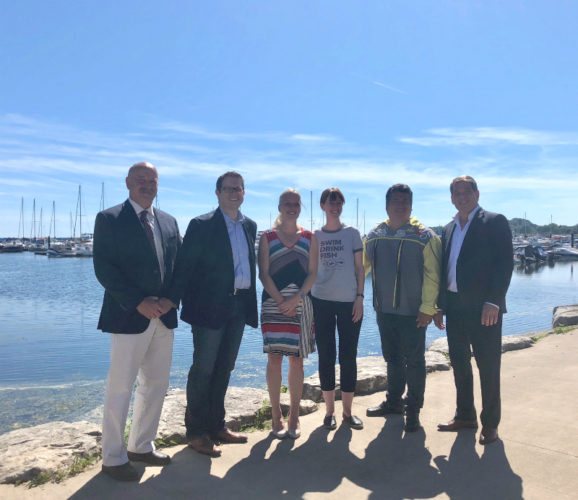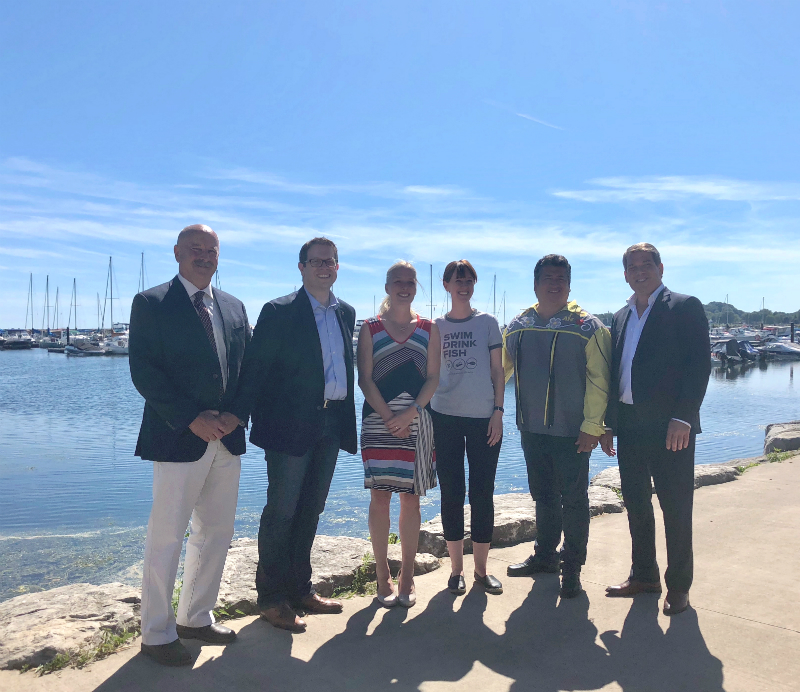Following last week’s announcement of new funding for Great Lakes projects, ALUS Canada has described some of the projects to which its $600,000 in funding from Environment and Climate Change Canada’s Great Lakes Protection Initiative (GLPI) will be directed, with the overall goal to improve water quality in Lake Erie.
“We are thrilled with this important new funding from the Great Lakes Protection Initiative,” said Lara Ellis, director, Strategic Initiatives at ALUS Canada. “This will allow us to quickly establish more natural infrastructure projects on agricultural land in the Lake Erie Basin, and to quantify their beneficial effects through modelling research.”
Specifically, ALUS will support participating farmers to restore, enhance, and maintain 30 hectares of wetlands, riparian buffers, native prairie grass, shelterbelts, and erosion-control projects through renewable, five-year contracts. These types of projects have been shown to significantly reduce the level of phosphorus in local waterbodies.
“ALUS Canada is doing really important work. We know that we need to be working with farmers when it comes to water quality, so it’s a very important partnership,” said Minister Catherine McKenna at the July 19th announcement, held on the shores of Lake Erie.

This funding works towards the Government of Canada’s commitment to improve water quality in the Great Lakes, such as by reducing soluble phosphorous contributions to Lake Erie by 40 per cent compared to 2008 levels, to fight nuisance algae.
“ALUS projects benefit the entire Great Lakes Basin by improving water quality, producing cleaner air and creating more wildlife habitat,” said CEO Bryan Gilvesy. “We invest in farmers, ranchers, and community partners to provide effective solutions to some of the biggest environmental problems of our day.”
Three of the 21 ALUS communities already established across Canada will benefit from the new GLPI grant—ALUS Norfolk, ALUS Middlesex, and ALUS Chatham-Kent.
“Our work with ALUS Canada is another example of our environmental leadership, in this case water stewardship,” said Bob Fields, director, Environmental Services at Norfolk County. “Working with local farmers through Norfolk’s ALUS Partnership Advisory Committee will be instrumental in identifying the best sites to develop ALUS projects for the highest environmental impacts in our County.”
The GLPI grant also supports ALUS Canada in conducting a $300,000 cost-benefit analysis to evaluate the effectiveness of these ALUS projects for phosphorus reduction within the priority regions identified by the GLPI. ALUS is delighted to work with Dr. Wanhong Yang, University of Guelph, who has pioneered an innovative tool, known as IMWEBs (Integrated Modelling for Watershed Evaluation of Beneficial Management Practices).
ALUS Canada recognizes its key partners in this Great Lakes natural infrastructure project—Norfolk County, the University of Guelph, and Innotech Alberta. ALUS has strong community affiliations, such as with the Lower Thames Valley Conservation Authority who has partnered with us to launch the ALUS Chatham-Kent program. Many local ALUS projects are additionally supported by Long Point Region CA and other partners.









